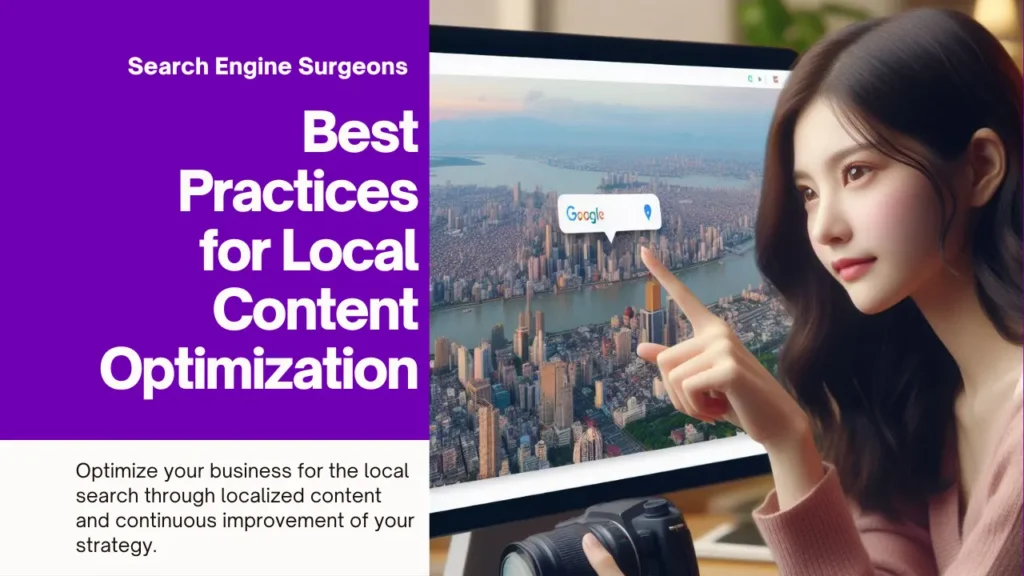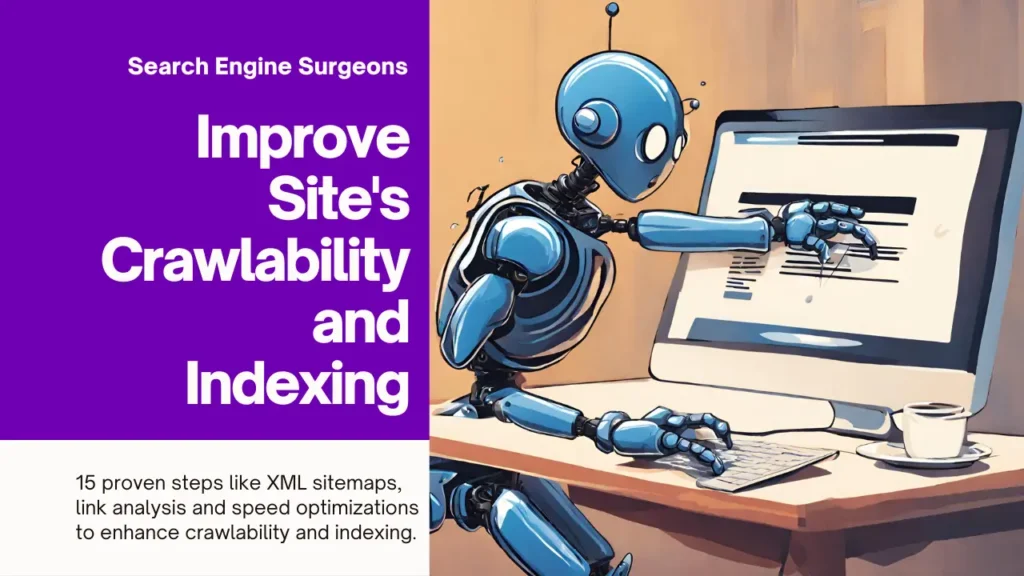Have you ever clicked on a search result only to find the page had nothing to do with the title? As a writer and small business owner, poorly optimized titles frustrated me to no end. That’s why I dove deep into title optimization, studying analytics and strategies from top sites.
What I discovered changed everything. Properly crafted titles boost traffic, clicks and search performance. But with limited characters, every word counts. In this post, I’ll share the proven formula I used to increase traffic 300% in just 6 months.
We’ll cover title best practices search engines love like keyword placement, character counts and testing variations. I’ll also provide real examples to help you stand out from the crowd. When you master the art of the page title, you’ll see more qualified visitors finding your most valuable content. Let’s get started!
What is a Page Title?
When I first started blogging, I’ll admit I didn’t fully understand the purpose of a page title. I saw it as just another text field to fill. Boy, was I missing out!
A page title serves two key purposes:
It Provides Context in Search Results
The title is often the primary—and sometimes only—representation of your page in search engines. It gives searchers a snapshot of what they’ll find if they click.
For example, when searching for “how to bake a cake,” a title like “A Delicious Recipe for Chocolate Cake!” provides more useful context than “My Baking Blog.” The first one screams “this has what I’m looking for!”
It Orients Visitors on Your Page
Once someone reaches your page, the title tells them if they’re in the right place. It orients them using keywords in a natural sentence structure.
When the title matches search intent but the content disappoints, it’s a lost opportunity. I’ve clicked before only to find a page about something completely different! Frustrating for both visitors and search engines.
Proper use of the page title is key to meeting user expectations and helping search engines understand your content. It sets the stage for a positive experience on your site.
Why are Page Titles Important for SEO?
When I first started optimizing my site for search, I viewed titles as an afterthought. Boy, was that a missed opportunity! Properly crafted titles provide several crucial benefits for both users and search engines.
Help Users Understand What the Page is About
Let’s face it – we’re all skimmers online. Titles give users a snapshot of whether a page is relevant to their needs. As someone who regularly searches Google, I appreciate when a title clearly conveys what I’ll find with a quick glance.
For example, the title “3 Tips for Growing Huge Tomatoes” immediately communicates the focus, saving me time. Whereas “Gardening Blog Post #5” leaves me wondering what it’s really about.
Reassure Users They’ve Found the Right Page
Nothing is more frustrating than clicking a result only to find it doesn’t match the search query at all. A properly optimized title confirms to users that they’ve landed where they intended. It sets expectations for what the page delivers.
Confirm Page Content if the Title is Revised
Search engines don’t always display the exact title HTML tag. Google may edit it for length or to improve relevance. Optimized titles still accurately represent the page even if altered slightly by algorithms.
Keep Readers Engaged on the Page
Your title is the first impression. It entices users to read on by addressing their needs in a compelling way. A captivating title keeps visitors engaged and less likely to click away.
When used strategically, page titles improve the entire search and user experience. They help search engines understand your expertise while guiding qualified traffic to your most valuable content.
Best Practices for Optimizing Page Titles
When optimizing page titles, it’s important to strike the right balance between readability, relevance and brevity. Here are some best practices to keep in mind:
Include the Main Keyword/Topic of the Page
The title should very clearly communicate what the main topic or keyword of the page is. This allows searchers to instantly understand relevancy at a glance. For a blog post about growing tomatoes, a title like “3 Expert Tips to Grow Huge Tomatoes in Your Garden” tells users right away what they can expect to learn. The keyword “tomatoes” is included to reinforce relevancy.
Write for the User in a Natural, Conversational Tone
Rather than using jargon or technical language, aim to speak to readers in a friendly, casual way. The goal is to build trust and engagement by adopting an approachable, conversational style. For example, saying “An Insider’s Guide to Growing Monstrous Tomatoes” sounds more inviting than “Best Practices for Tomato Agriculture – A Comprehensive Tutorial.”
Limit Length While Keeping it Descriptive
With mobile searches in mind, titles need to be scannable within 55-60 characters to ensure readability on smaller screens. However, it’s still important to retain clarity and description rather than using vague, truncated language. A title like “3 Expert Tips for Growing Huge, Flavorful Tomatoes at Home” balances length with specificity.
Don’t Stuff Keywords or Repeat the Same Words
Variety makes for a more interesting read. Rather than cramming in redundant keywords, replace some with synonyms to achieve natural flow. For instance, “Tips for Cultivating Large, Juicy Tomatoes Organically” avoids repetitive phrasing.
Consider Including Your Brand/Site Name
Including your brand or domain establishes expertise and familiarity for returning visitors. It can also boost clicks from loyal readers and subscribers. Something like “The Gardening Blog: 3 Ways to Grow Enormous Tomatoes” leverages brand recognition.
Make Titles Specific to the Unique Page Content
The title should describe exactly what the reader will learn or get from the page. Being overly vague risks disappointing visitors if content doesn’t match expectations. It’s best to specify the unique solution, benefit or topic covered.
Examples of Well-Optimized Page Titles
To help illustrate best practices in action, here are a few examples of titles that I’ve found to be highly effective:
Example 1:

“How to Grow Big Tomatoes (with Pictures)”
This title immediately conveys the topic of growing big tomatoes in an inviting way. It also addresses a common concern for novice gardeners by mentioning “with Pictures.” Overall, it piques interest and sets the right expectations.
Example 2:

“10 Secrets to Growing Tomatoes (Avoid Pitfalls Now!)”
The use of “secret” hooks the reader into wanting to learn the hidden key. “Avoid Pitfalls Now!” also quantifies the specific issues to avoid in a compelling way. It’s straightforward yet intriguing.
Example 3:

“How to Grow Tomatoes without a Garden”
A specific, personalized example like this one sparks curiosity. Readers want to learn how the author succeeded against the odds. The measurable result of a great tomatoes also conveys the tips have been battle-tested.
The common thread with these titles is they immediately paint a picture of the valuable lessons or solutions inside. They leverage keywords while also capturing attention through persuasive framing of benefits. Titles like these keep readers engaged and eager to learn more.
Additional Tips for Optimizing Page Titles
Now that we’ve covered the basics, here are some additional tips to keep in mind:
Test Different Title Variations
- A/B test multiple title formulations by publishing different variations of the same page.
- Track metrics like click-through rate and time on page in your analytics to see which title performs best.
- Some factors to test include keyword placement, length, inclusion of benefits vs features, and use of numbers, questions or lists.
- Testing is important because titles that work well for one topic may not for another. It helps you refine your approach over time.
Consider Sharing on Social Media
- Titles optimized for search may be too long for platforms like Facebook and Twitter which have character count limits.
- Create shortened title variations specifically for social sharing that are snappy and enticing within those constraints.
- You could also test call-to-action phrasing like “Read this article” vs “3 Tips for [topic]” for different networks.
Optimize the Whole Page
- While titles are important, search engines also evaluate on-page content, internal links, load speed and other factors.
- Ensure your full pages are thoroughly optimized for your target keywords through relevant text, images, headings and internal linking.
- Don’t neglect other on-page SEO best practices like meta descriptions, H1-H6 headings, etc.
The key is continuous testing, learning and refinement over time to master title optimization for any topic. You can also read some tips from Google Search Central Page.
Conclusion
Optimizing page titles is an important part of an overall SEO strategy. In this article, we explored why titles are so crucial for both users and search engines. We also looked at best practices and examples to help you craft titles that are descriptive, engaging and optimized for search.
While titles play a key role, it’s important to remember they are just one element of on-page optimization. Don’t forget to thoroughly optimize your full page content, internal linking, images and other factors that search engines evaluate. Testing title variations over time through analytics is also crucial to refine what works best for different topics and pages.
With continuous learning, practice and refinement of your title formulation process, you can create irresistible snippets that boost qualified traffic to your most valuable content. Just remember to place users first by addressing their needs and questions. Relevant, helpful titles set the stage for a positive experience on your site.
I hope you found these tips useful as you optimize your own site. Be sure to test ideas from this article and track results. With dedication to improvement, page titles can become a powerful lever for growth in search and beyond.





